When art and politics collide
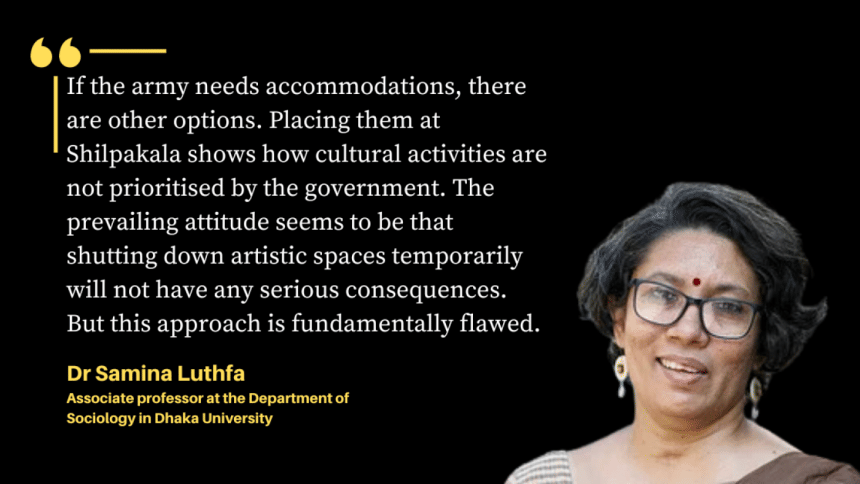
Dr Samina Luthfa, associate professor at the Department of Sociology in Dhaka University, talks about the recent controversy surrounding Shilpakala Academy and the theatre scene in Bangladesh with Monorom Polok of The Daily Star.
The halting of a theatre performance at Shilpakala early November caused quite a stir. Could you share your thoughts on this incident?
The decision to halt the theatre performance on November 2 was an unprecedented and unfortunate event in the history of Bangladeshi theatre. A group of people came and threatened to set fire to the Shilpakala Academy, attempting to attack the premises. This incident created a sense of insecurity and fear among the theatre group and audience members—and I fully acknowledge that there were real and genuine security concerns for us all.
In such a situation, what do you believe should have been Shilpakala Academy's role?
Shilpakala Academy has a responsibility to ensure the safety of both theatre practitioners and the audience. Although other institutions across Bangladesh had resumed normal operations, the academy was the last to reopen, and even then, only on a limited scale. Although the venue finally reopened post-uprising, Shilpakala Academy has not returned to its usual state. The halls are still heavily guarded, with the army stationed there. The academy, once a cultural centre, has effectively become an army encampment. We understand that the army's presence is necessary for maintaining law and order, but why should they occupy Shilpakala?
The state should find an alternative solution. If the army needs accommodations, there are other options. Placing them at Shilpakala shows how cultural activities are not prioritised by the government. The prevailing attitude seems to be that shutting down artistic spaces temporarily will not have any serious consequences. But this approach is fundamentally flawed. Using Shilpakala to accommodate the army reflects a lack of appreciation for the power of cultural practices in challenging authoritarian mindsets.
Has this incident impacted the financial stability of theatre groups? Could you explain how?
The decision to open only the largest hall, which is costly to use and requires a significant audience turnout, has placed tremendous financial pressure on theatre groups. Even so, groups have tried to continue performing on Fridays and Saturdays. However, staging plays at the National Theatre Hall remains economically challenging, and one group, even after paying for their performance date, was unable to complete their show. Symbolically, this incident has damaged the government's image, while also creating severe financial difficulties for the theatre group involved and discouraging audiences from attending performances. Such outcomes have seriously harmed the theatre and cultural scene.
The director general of Shilpakala has claimed the performance was halted to ensure audience safety. Was this the correct response in your view?
The director general of Shilpakala claimed that the performance was stopped to ensure audience safety. But when a small group of 10-15 people threatened to set fire to the building where the army was stationed, the situation was clearly mishandled. I understand that he faced a difficult dilemma: defying the mob's demands, aligned with the sentiments of the July uprising, or upholding the age-old tradition of "the show must go on." He chose to halt the performance, a choice that has had significant repercussions. Had the incident been handled more decisively, it might have been prevented. Instead, indecision triggered a ripple effect, worsening the situation.
An additional complication arose because one or two members of the theatre group were known supporters of the previous fascist regime. But if you look across Bangladesh, you will find numerous people affiliated with the Awami League. There are undoubtedly many AL supporters within the theatre community as well. Yet, would it be justified to punish a person for their speech in the new Bangladesh? Does it make sense to condemn an entire troupe for one person's opinions? On November 2, protesters demanded that this individual be handed over to them. This signifies a complete disregard for judicial processes, suggesting an intent to enforce their own form of justice.
I am not defending this individual's actions. His Facebook posts were inappropriate and crossed boundaries of decency. However, punishing an entire theatre group for one person's actions is unfair, and cancelling a performance on these grounds is indefensible.
Ironically, those causing disruptions did not even know the name of the theatre group or the person they were targeting, who wasn't a performer but a member of the ensemble. This highlights how the cultural enablers of Hasina's regime—as well the leaders of Dhaka's theatre scene—have created a disconnect between their so-called "holy shrine" of art (Shilpakala Academy) and the masses.
This seems to highlight a deeper issue of intolerance in the public sphere. How would you describe the behaviour of the disruptors that day?
The disruptors seemed to lack an understanding of theatre customs and norms. They attempted to incite violence in a coordinated way, which should not be tolerated by the government, as it ultimately harms its reputation. Additionally, theatre activists need to engage with these individuals and bring their art closer to the public to bridge this divide.
The day after the incident, theatre practitioners protested outside Shilpakala Academy. We submitted our six-point demand to the director general, including the immediate resumption of the play at no cost to the group and the reimbursement of incurred expenses. Additional demands, such as removing the military presence, were also raised. If the venue had been accessible to theatre practitioners and audiences, a small group of disruptors would not have caused such chaos. This was evident on November 8, when a large number of theatre workers were present, preventing further disturbances.
Despite efforts of resistance, the conflict continues to escalate. The Federation of Theatre Groups has organised more protests, and some groups have suspended performances in protest. But this could have been prevented if the initial error had been handled differently. Now, even the fascist enablers situated abroad are organising protests, stating that the government has shut down all cultural activities in the country. Meanwhile, concerts, festivals, and events continue across Dhaka, yet theatre at Shilpakala remains in turmoil.
Were incidents like this common under previous regimes, or have things changed over the years?
No, nothing like this occurred under previous regimes. Historically, Bangladesh's theatre community supported the AL. They actively defended the party's actions and suppressed dissent. In the 1980s, groups like the Group Theatre Federation opposed Ershad's dictatorship through street protests and protest theatre. However, over the last 10-15 years, many of these same figures aligned themselves with the AL's cultural agenda.
This cultural control stifled dissent, equating criticism of the AL government with anti-Liberation War sentiments. Organisations like the Group Theatre Federation enforced this narrative, determining performance schedules, government grants, and resources based on political loyalty.
Is this the first time that theatre has been used to protest issues beyond politics, like environmental concerns?
One example is the play by the group Tirandaj, which was cancelled during the Sundarbans movement in 2016. They planned a debate on whether a power plant near the Sundarbans was justified, unrelated to their play. Yet, the play and the debate were both cancelled. This decision was met with little resistance from theatre groups, except for a few. Our group, BotTala, opposed this injustice and was subsequently denied performance dates at Shilpakala Academy for 18 months, until we threatened legal action.
Another incident involved attacks by Awami League's youth wing activists during a university theatre performance, where the audience and performers were harassed. Instead of condemning the attackers, theatre practitioners held a meeting to admonish those who spoke out against the violence on Facebook. This pattern of silencing criticism persisted, with cultural enforcers protecting the political interests of the last government.
Theatre should be a space for expressing reality and confronting injustices. We cannot have genuine artistic expression unless those who have supported authoritarian practices in the last regime admit their mistakes. True artists must have the courage to acknowledge their errors and seek reconciliation. If someone has publicly justified violence, the massacre in July, or enabled cultural fascism, they must apologise and make amends. Only then can we move forward.
For those of us who use theatre as a medium of protest and expression, it is difficult to share space with people who have vilified and undermined the July uprising, its martyrs, and their sacrifices. We cannot forget the harm they have done, both to individuals and to the cultural landscape. Reconciliation must begin with accountability from those responsible for past harms. Otherwise, our commitment to art and social progress will be meaningless.
Follow The Daily Star Opinion on Facebook for the latest opinions, commentaries and analyses by experts and professionals. To contribute your article or letter to The Daily Star Opinion, see our guidelines for submission.

 For all latest news, follow The Daily Star's Google News channel.
For all latest news, follow The Daily Star's Google News channel. 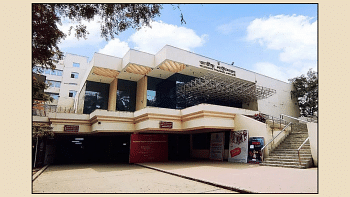

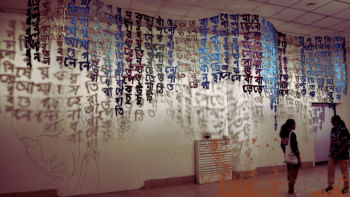
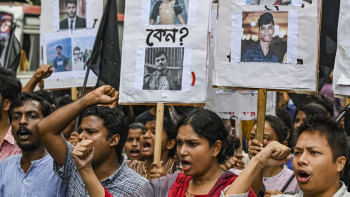




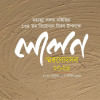
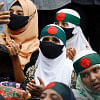
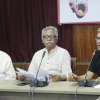


Comments